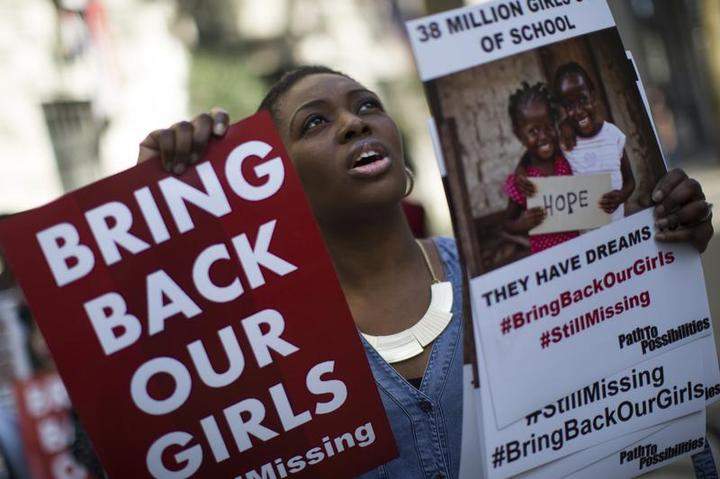WATCH: It’s been a year since Boko Haram abducted almost 300 girls from a school in Chibok, Nigeria. But, that was just the start, with hundreds more women and children disappearing since then. Despite a campaign to “Bring Back Our Girls,” there remains little hope. Stuart Greer reports.

TORONTO – Boko Haram kidnapped 276 schoolgirls on April 14, 2014. A year later, despite the viral spread of the #BringBackOurGirls hashtag, most of the girls still haven’t been brought home.
But the #BringBackOurGirls hashtag, tweeted by hundreds of thousands of people including First Lady Michelle Obama, has helped galvanize international aid, according to an Amnesty International official.
“Those girls aren’t at home and it has been a year. And that is incredibly tragic and we very much hope that they will end up home with their families as soon as possible,” Jacqueline Hansen, the major campaigns and women’s rights campaigner at Amnesty International Canada said in an interview.
“But what happened and the international attention and the campaign has helped to galvanize the international support to help making the girls coming home much more likely.”
The night of the kidnappings, Boko Haram fighters were in a firefight with soldiers in the town of Chibok, in northeastern Nigeria. A group of Boko Haram fighters dressed in military fatigues split off from the firefight and went to the school pretending to be soldiers. They kidnapped 276 girls; 60 of them managed to escape but 216 of them are still not home.

Get breaking National news
Hansen said Tuesday the 216 girls have become a symbol for the broader human rights abuses rampant in the region.
The campaign has shifted with “Never to be forgotten” replacing the old slogan on the one-year anniversary. President-elect Muhammadu Buhari, who promised increased efforts to bring the girls home, said in a statement that he can’t promise the girls will get home safe.
“We do not know if the Chibok girls can be rescued. Their whereabouts remain unknown,” he said in a statement. “As much as I wish to, I cannot promise that we can find them.”
READ MORE: Boko Haram kidnapped over 400 children, women from Nigeria town: report
“No one knew who Boko Haram even were outside of the region. The Chibok girls made Boko Haram a household name and they really have come to symbolize so much more than their actual disappearances but really they’re symbolic of this conflict.”
READ MORE: UNICEF says 800,000 children forced from homes by Boko Haram
Hansen said at least 2,000 women and girls have been kidnapped in the region, with many of them sold into sexual slavery and others used as suicide bombers. A minimum of 5,500 civilians have been killed.
“It’s almost unimaginable the scale of the devastation,” she said.
And on the one-year anniversary of their disappearance, the efforts to bring the girls home have increased. The Empire State Building in New York will be lit up purple and red on Tuesday, symbolizing a call to end the violence against women and girls.
–With files from The Associated Press








Comments
Want to discuss? Please read our Commenting Policy first.